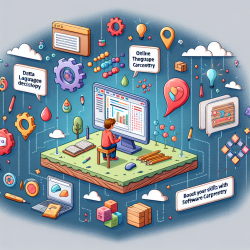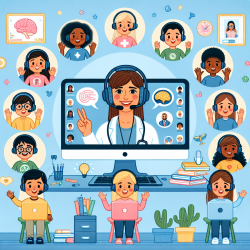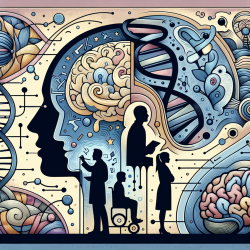Boost Your Skills with Software Carpentry: Lessons Learned
As practitioners in the field of speech-language pathology, continuous improvement of our skills is essential to provide the best outcomes for children. A recent research article titled Software Carpentry: Lessons Learned by Greg Wilson offers valuable insights that can be applied to enhance our practice. Here, we’ll explore key takeaways from the study and how they can be implemented in our daily work.
Why Software Carpentry?
Software Carpentry aims to improve researchers' computing skills through intensive workshops. The program has demonstrated significant improvements in participants' computational understanding, habits, and routines. This is particularly relevant for speech-language pathologists who rely on data-driven decisions to enhance therapy outcomes.
Key Lessons and Their Applications
1. Focus on Practical Skills
The workshops emphasize practical skills such as program design, task automation, and version control. For speech-language pathologists, mastering these skills can streamline data management and analysis, allowing more time to focus on direct therapy.
2. Short, Intensive Training
Short, intensive workshops are more effective than longer, drawn-out courses. Consider implementing short, focused training sessions within your team to quickly upskill in essential areas.
3. Real-Time Feedback
Incorporating real-time feedback mechanisms, such as sticky notes for quick checks of understanding, can enhance learning and retention. This can be adapted in therapy sessions to gauge children’s understanding and progress more effectively.
Encouraging Further Research
The study highlights the importance of continuous learning and adaptation. As practitioners, we should encourage ongoing research and participation in programs like Software Carpentry to stay updated with the latest tools and techniques.
Conclusion
Implementing the lessons learned from Software Carpentry can significantly improve our computational skills, leading to better data management and ultimately, better outcomes for the children we serve. Continuous learning and adaptation are key to staying at the forefront of our field.
To read the original research paper, please follow this link: Software Carpentry: lessons learned.










